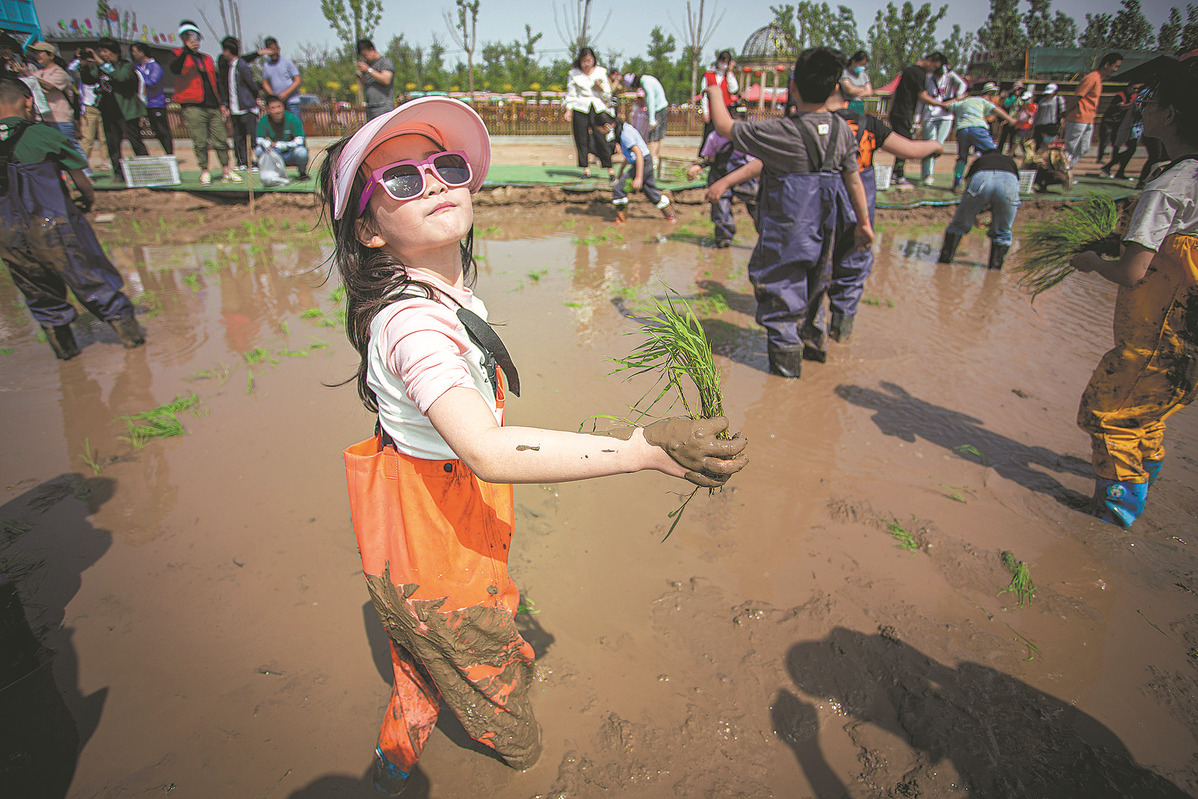
Locals moving back to village to seek opportunities in diversifying economy
 Qingguang village in Tianjin has seen flourishing tourism activities developed from its agricultural sector. [Photo provided to China Daily]
Qingguang village in Tianjin has seen flourishing tourism activities developed from its agricultural sector. [Photo provided to China Daily]
At 34 years old, Yu Hang fondly reflects on his childhood in Qingguang village on the outskirts of Tianjin, a place once famous for being one of the largest chicken farms in North China.
At the age of 5, he even took part in raising chickens alongside his family and fellow villagers, lending a hand in collecting eggs.
During the 1990s, Qingguang village had a chicken population of approximately 1 million within its 7.5-square-kilometer expanse.
However, in recent years a remarkable transformation has taken place and the village has diversified into other areas of agriculture, manufacturing and services.
Qingguang's total revenue last year hit 100 million yuan ($13.8 million), which marks a testament to the village's concerted effort since the early 2000s to grow in agriculture and industry, according to local officials.
Having witnessed the astounding evolution, Yu made a pivotal decision in 2016 to return to the village he had previously left in order to pursue a career back home.
Since leaving Qingguang, Yu had worked for a foreign trade company in Africa, but decided to return to the village to capitalize on its impressive development prospects.
Yu now works in agricultural machinery services in the village while "spearheading new tourism projects that leverage the local agricultural sector's inherent strengths", he said.
A source of immense pride for the villagers is the increasing influx of educated and experienced young individuals like Yu, who graduated from Tianjin Foreign Studies University.
More than 40 young people have been incorporated into the village's talent pool, a vital component in bolstering the local economy.
The village is now not only known as a major fruit-growing hub for Tianjin but also serves as a pivotal high-tech and pharmaceutical hub in Beichen district, with burgeoning cultural tourism projects.
The foresight of leaders in the village has been a driving force behind its success.
For example, when Beichen district earmarked funds for the establishment of a pharmaceutical industrial park in 2009, Qingguang received a substantial subsidy of up to 200 million yuan.
"Rather than disperse the funds directly to villagers, we decided to invest in local industries, resulting in the establishment of the Jiuhe Industrial Park," said the village's Party chief Wang Xiaodong.
In addition to the Jiuhe park, the establishment of a high-tech industrial park in 2014 has furthered eco-friendly industries, providing villagers with stable income and bolstering employment opportunities.
The high-tech park has attracted 18 companies specializing in equipment manufacturing, medical facilities, information technology and health food.
The village's strategic initiatives have yielded substantial returns, contributing to 65 percent of the town's revenue.
These efforts have led to an influx of 10,000 new residents seeking employment, effectively doubling the village's population to 20,000.
In 2023, local villagers reaped the benefits of restructured industries and agricultural sectors, yielding dividends totaling 28.5 million yuan, as reported by Zhibu Shenghuo magazine in Tianjin. Additionally, 27 million yuan was allocated for local senior citizens' pensions and holidays and birthday celebrations during the period.
Zhang Jianjing, deputy Party chief of the village, said, "The village is now boosting efforts in the merging of the agricultural, industrial and service sectors."
New functional areas including fruit planting, agricultural processing, as well as leisure and scenic sites are in the pipeline, he said.

Copyright © 2024 Tianjin Municipal People's Government. All rights reserved.

Copyright © 2024 Tianjin Municipal People's Government. All rights reserved.